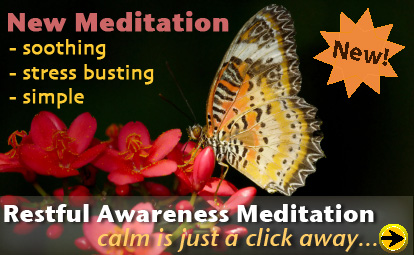What Chronic Illness Taught Me About Mindfulness
 When you're living with chronic illness you can't multitask, in fact sometimes you can't even complete the simplest task like getting washed and dressed without breaking things down into tiny bite sized chunks.
When you're living with chronic illness you can't multitask, in fact sometimes you can't even complete the simplest task like getting washed and dressed without breaking things down into tiny bite sized chunks.
You might think that getting dressed is one task. Not so for those struggling with illness. The challenge of illness breaks down getting dressed into a series of small triumphs, one sock at a time.
With such a reduced capacity for activity, moment by moment awareness facilitates the understanding of accomplishment. No matter how small the achievement, a sense of inner acknowledgement can be the difference between getting by with grace and sinking into the realms of hopelessness.
Lowering the Bar
All living creatures experience pleasure as a result of completing simple tasks. And that pleasure and sense of completion is what motivates them to do more. If illness means your ability to complete tasks is reduced, it would be an act of self-kindness to lower your expectations accordingly.
Mindfully Peeling Carrots
On days when I’ve been particularly challenged by aching muscles and exhaustion, cooking feels like a major endeavor, yet it’s on those days that I knew I most need to eat with care. To think of cooking a meal as one act was too big a challenge. Too long on my feet, too painful for my arms etc and that’s where my training in chunking things down to micro tasks became invaluable. Instead of “cooking a meal” I would peel one carrot with full focus, when it was done I would do another, then a zucchini, then a potato, then blend some cooking spices. You get the idea. Eventually one wholesome nourishing meal was made for myself and the family and I could sit and rest a while feeling like I’d triumphed over adversity!
This & Only This
Mindfulness simply means living life one act and one moment at a time. I’m grateful to one of my spiritual mentors for teaching me years ago that if you are doing two things at the same time you are doing neither of them properly. If we are praying we should do so with full attention and heart. If we are eating, we should do so in peaceful gratitude. When we settle down to sleep we should accept that it’s time to rest and let go of all thoughts of what we still have to do. If we surrender to sleep, to resting and recharging, we will be more productive tomorrow than if we sleep in a standby state thinking of what we could or should be doing other than resting.
Single minded focus reduces stress, it makes us more efficient, it improves the quality of our work and our relationships and brings a greater sense of satisfaction and completion in all that we do.
3 Simple Tips for Developing Daily Mindfulness
Watching - nature, children playing, focusing on a candle flame. These simple acts of stillness are the perfect antidote to rushing, traffic, TV etc. The things that rush our heads increase our stress and anxiety levels. Even 5 minutes a day spent in conscious slowing down can give us some tangible protection from the effects of stress.
Breathing - 5 minutes focused on your breath and nothing else - feel the cool air enter your nose, hear the slight sigh it makes as you draw it into you body, notice how it makes a different sound as it leaves, and how you don’t feel it so much because your outward breath has been warmed by your body
Writing - expressing your thoughts on the page. What have you learned? What have you read? How are you coping with the challenges in your life? What do you have to be grateful for? Noting your thoughts on paper is also an act of mindfulness that brings conscious awareness to your thoughts for processing as you so desire.
Photo Tender Butterfly by mindfulness
